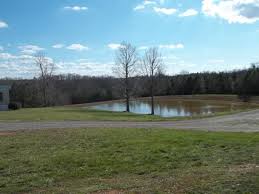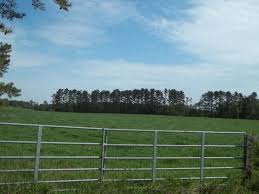Images of Anson County Wills Online
- 1751-1779
- 1790-1830
- 1801-1812
- 1829-1848
- 1849-1868
Minutes of Quarter Sessions
- 1771-1775

An explanation of Pleas and Quarter Session Minutes in North Carolina
This type of court emulates a court that met quarterly in Great Britain. In early colonial America, it also had criminal jurisdiction.

An explanation of Pleas and Quarter Session Minutes in North Carolina
This type of court emulates a court that met quarterly in Great Britain. In early colonial America, it also had criminal jurisdiction.

The genealogist should always examine the minutes of this court. And for good reason. It is similar to the (later) Inferior Court Minutes which registered everything from wills, administrations, inventories, and estates in general. The colonial North Carolina court recorded last wills and testaments as they were entered for probate, detailed inventories, distributions, sales of perishable goods and who purchased them, names of orphans and who they were apprenticed to, appointments of administrators, bonds, road commissioners and a general description of road junctures, adjoining lands and ferries. These minutes tell the story of the neighboring lands and what was happening. Simply a mention of your ancestor’s name is reason enough to search them because you discover the years that he resided in that county, as well as some of his personal affairs, like proving deeds as he purchased and sold the property, registering of brands (animals), the appointments of churchwardens, and districting lines drawn through his property. So often, the genealogist is unable to locate a last will and testament in the will books. The minutes will mention that it was filed as well as the date, even if it was not found in the will books. You simply have too much to gain to overlook this valuable source!

Names of Families in Anson County Genealogy, Wills, Estates
Anson County was formed in 1750 from Bladen County. It was named for George Anson, Baron Anson, a British admiral, who circumnavigated the globe from 1740 to 1744, and later became First Lord of the Admiralty. The county began to shrink in 1753 when the northern part of it became Rowan County. In 1762 the western part of Anson County became Mecklenburg County. In 1779 the northern part of what remained of Anson County became Montgomery County, and the part east of the Pee Dee River became Richmond County. Finally, in 1842 the western part of Anson County was combined with the southeastern part of Mecklenburg County to become Union County.
Images of Wills 1751 to 1779
Names of Testators: Auld, James | Auld, Rachel | Auld, Richard | Armstrong, James | Blackford, Samuel | Clements, Matthew | Coburn, John | Colson, John | Davis, Christopher | Ferguson, David | Giles, John | Haynes, John | Hicks, John | Hough, Richard | Husbands, John | Ingram, George | Jackson, John | Johnson, William | Lanier, Sampson | Lee, John | Lee, Robert | Love, William | Martin, Joseph | McClendon, John | McConnell, Alexander | McDowell, Charles | McPherson, Priscillah | McLeod, Jeannette | Meadors, Jason | Meredith, James | Moore, John | Morris, Charles | Presler, John | Ratliff, William | Roper, John | Ryle, John | Smith, Thomas | Snead, Samuel | Stephens, John | Stewart, John | Terry, William | Van House, John | Vaughn, Stephen | Wade, Thomas | White, Thomas | Wilson, George
An Index to the Minutes of the Pleas of the Quarter Sessions 1771 to 1775 is available.
Genealogists Should Not Ignore Great History!
The old Wills and Testaments found in North Carolina counties offer too much genealogical information. For this reason, the researcher should never ignore the old Wills and Estates and should search every single aspect of the estate records, including inventories, annual returns, vouchers, receipts, etc. The last will and testament are like a road map, incredibly valuable to family members, past, present, and future. This is where you find names of children, grandchildren, spouses, aunts, uncles, cousins, and places of origin. Many testators mention the children had by the first, second, and third wives. There is simply too much information to bypass. Members of North Carolina Pioneers are enjoying the frequent updates and additional wills being added every week. Members do not have to search for an index, then scan through pages and pages searching for specific documents. Our Wills are listed alphabetically by the name of the testator and require but one click to bring up the document. How easy is that?